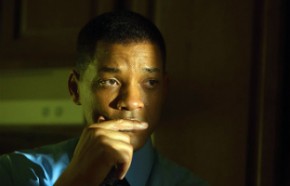An immigrant’s eye

My friend Bethel Lee was born in Korea and immigrated to California. In seminary, she studied Wendell Berry’s theological form of localism but grew tired of his celebration of the local and the rooted. Doesn’t the Bible also tell an immigrant’s story, she wondered, a story not of staying put but of going to a new land that God will unveil in due time?
Israel maintains its identity when it’s violently removed from its land. It settles down in exile, building dwellings, and marrying and giving in marriage. Lee’s father is an evangelical pastor in California, and she is doing work in the United Church of Canada in ways nobody could have predicted. Isn’t this as biblical as Berry’s localism?
An immigrant story is at the heart of the movie Concussion. Dr. Bennet Omalu (Will Smith) is a Nigerian immigrant to America who takes on the National Football League, showing that the violence of America’s favorite game is causing long-term neurological disease in many of its athletes. Omalu doesn’t care about football, so he’s not tempted to join in the conspiracy of silence about the adverse effects of the game. If the game goes the way of bear baiting, so what?




